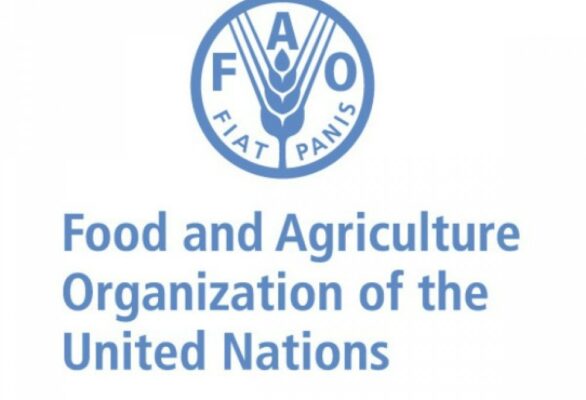
Collins Nnabuife|Abuja

THE Food and Agriculture Organisation of the United Nations (FAO), has said with an estimated population of 400 million by 2050, large food deficits remains a major challenge to the food system, despite having the potential to feed its growing population into the coming decades.
FAO in a statement in Abuja noted that food self-sufficiency can be attained, not only through production technologies but also entrenching sustainable and inclusive food systems in the structure, governance and administration.
It noted that was highlighted in the recently released Nigeria food system assessment profile conducted in 2022 where gaps such as low yields, post-harvest losses, food safety concerns and climate change impacts, coupled with weak implementation of relevant policies and legislation, all combine to stagnate the predominantly rain-fed agriculture production.
According to FAO, the assessment, it said, was part of a joint initiative launched by the European Union (EU), the Food and Agriculture Organisation (FAO), and the French Research Centre for Agricultural Development, CIRAD, in collaboration with the Government of Nigeria.
Commenting on the report, the FAO Country Representative in Nigeria and to the Economic Community of West African States (ECOWAS), Fred Kafeero highlighted four key challenges hindering the country from transitioning towards a desirable sustainable food system are highlighted therein.
Kafeero noted that it includes food system vulnerability to internal and global shocks; underdeveloped agrifood value chains; food system vulnerability to climate change and natural resource degradation; and poor diet quality and high prevalence of food and nutrition insecurity.
He said: “The current food systems are unable to fulfil their purpose of providing nutritious and healthy food for all and contributing to enhanced livelihood opportunities in an environmentally sustainable way. They are being challenged by several factors, including changing diets, technology, urbanisation and climate change.
“There may be enough food to feed everyone – preventing the dual health burdens of malnutrition and obesity.
“However, the economic and territorial imbalances are such that food systems do not generate fair economic returns for all actors, particularly for small-scale producers, triggering an endless cycle of precariousness and poverty. Current food systems need to be transformed if we are to achieve Sustainable Development Goals”.
YOU SHOULD NOT MISS THESE HEADLINES FROM NIGERIAN TRIBUNE
Governorship poll: Lagos, Oyo, Nasarawa, Rivers, Delta, Kaduna, five others are key battle states
2023 elections: Tinubu’s victory not God’s plan for Nigeria, Peter Obi replies Aisha Buhari, others
I never intended to toy with any lady’s emotions —Yemi Cregx
2023 presidential poll: We’ll hit streets if courts don’t work – LP
Super Eagles legend Vincent Enyeama ranked greatest African goalkeeper







